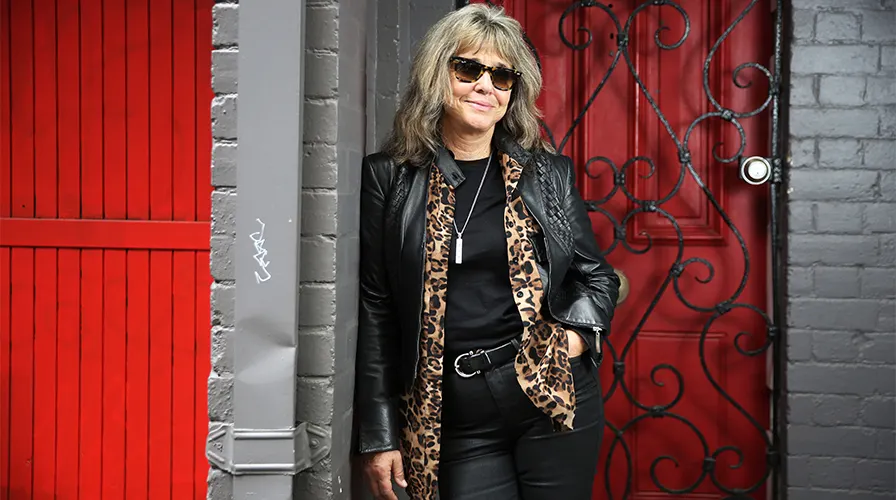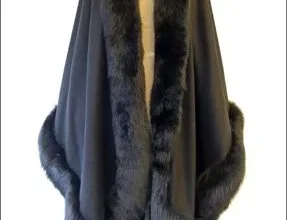Leather Tuscadero: A Rock ‘n’ Roll Icon of Television’s Golden Age

Introduction
In the pantheon of television characters, few have left as indelible a mark on popular culture as Leather Tuscadero. Introduced to the world through the beloved TV show “Happy Days,” Leather Tuscadero became an emblem of rock ‘n‘ roll rebellion and female empowerment in the late 1970s. Portrayed by the talented Suzi Quatro, Leather Tuscadero was more than just a character; she was a symbol of a cultural shift, embodying the spirit of rock ‘n’ roll and challenging traditional gender roles. This article delves into the creation, impact, and legacy of Leather Tuscadero, exploring how a fictional character captured the hearts and minds of a generation.
The Birth of Leather Tuscadero
“Happy Days,” a nostalgic television series set in the 1950s, became a cultural phenomenon when it aired from 1974 to 1984. Among its memorable characters, Leather Tuscadero stood out as a trailblazer. Introduced in the show’s fifth season, Leather was the younger sister of Pinky Tuscadero, Fonzie’s former flame. Leather’s entrance into the series was marked by her rebellious attitude, distinctive leather attire, and undeniable musical talent.
The character of Leather Tuscadero was brought to life by Suzi Quatro, a real-life rock musician known for her gritty vocals and bass guitar prowess. Quatro’s casting was a stroke of genius, as she seamlessly blended her onstage persona with Leather’s character, bringing authenticity and a raw edge to the role. Leather Tuscadero’s debut episode, “Fonzie and Leather Tuscadero: Part 1,” aired in November 1977, instantly captivating the audience.
The Impact of Leather Tuscadero
Leather Tuscadero’s impact on “Happy Days” and its viewers was profound. At a time when female rock musicians were still fighting for recognition in a male-dominated industry, Leather Tuscadero provided a powerful representation of a strong, independent woman who could hold her own in the world of rock ‘n’ roll. Her presence on the show not only entertained but also inspired young women to pursue their musical ambitions and defy societal expectations.
Leather’s musical performances on “Happy Days” were a highlight for fans. Songs like “Devil Gate Drive” and “The Wild One” showcased her talent and added an electrifying energy to the series. These performances were not merely for show; they resonated with audiences, reinforcing the idea that rock ‘n’ roll was a force for change and empowerment.
Moreover, Leather Tuscadero’s character broke away from the traditional female roles often seen on television during that era. She was tough, confident, and unapologetically herself. Her leather-clad image and rock ‘n’ roll attitude made her a role model for many young women who saw her as a symbol of liberation and self-expression. Leather’s influence extended beyond the screen, contributing to the growing acceptance and appreciation of female musicians in rock music.
Leather Tuscadero’s Legacy
The legacy of Leather Tuscadero extends far beyond her time on “Happy Days.” Suzi Quatro’s portrayal of Leather left an indelible mark on popular culture and continues to be celebrated by fans and musicians alike. Leather Tuscadero’s character has been referenced and parodied in various media, cementing her status as a cultural icon.
Suzi Quatro’s own career benefited immensely from her role as Leather Tuscadero. Already an established musician, Quatro’s exposure on “Happy Days” introduced her to a broader audience, enhancing her visibility and influence in the music industry. Her pioneering spirit and trailblazing contributions to rock music earned her the title of the “Queen of Rock ‘n’ Roll,” and she remains an inspiration to aspiring musicians.
Leather Tuscadero also paved the way for future television characters who challenged gender norms and stereotypes. Her success demonstrated that audiences were ready to embrace strong, multifaceted female characters, leading to more diverse and dynamic portrayals of women in media. Leather’s influence can be seen in later characters like Joan Jett’s portrayal in “Light of Day” and the emergence of female rock bands in the 1980s and beyond.
Conclusion
Leather Tuscadero’s legacy is a testament to the power of television to shape cultural narratives and influence societal perceptions. As a character, she broke barriers, challenged norms, and inspired countless individuals to embrace their unique identities and pursue their passions. Through Suzi Quatro’s dynamic portrayal, Leather Tuscadero became a symbol of rock ‘n’ roll rebellion and female empowerment, leaving an indelible mark on both the world of television and the music industry.
In a time when the fight for gender equality continues, Leather Tuscadero’s character serves as a reminder of the strides made and the work that remains. Her impact on popular culture is a celebration of individuality, resilience, and the enduring spirit of rock ‘n’ roll. As we look back on the golden age of television, Leather Tuscadero stands out as a true icon, whose influence resonates with each new generation of fans and musicians.




